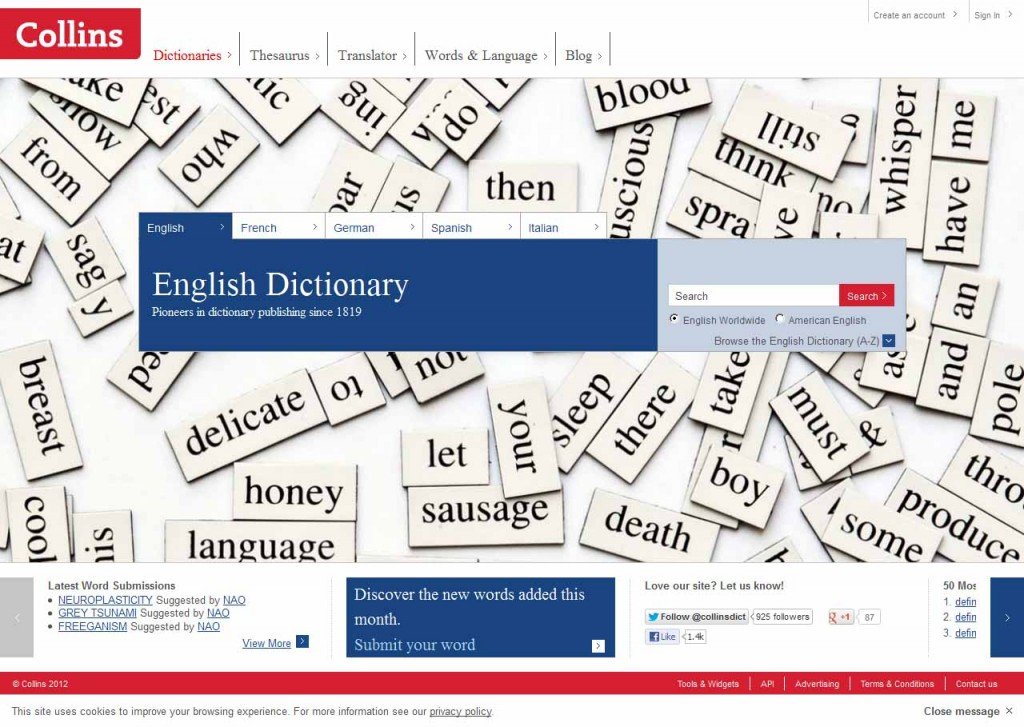“Google It”
“Bing It”
“Facebook Me”
“Tweet Me”
We all use these phrases which have now become familiar household verbs and nouns, so much so that the Collins English Dictionary has made a number of updates recently to officially include these relatively new terms from the technological age in their English language records.
Language constantly evolves, which is one of its most beautiful and fascinating elements. It is therefore only natural that in a world obsessed with the Internet and online communication, the Collins English Dictionary should decide to officially recognize the importance that these terms have in our lives on a daily basis.
Recent Collins English Dictionary Updates
What is perhaps most interesting about the recent developments to the Collins English Dictionary is that the range of new language entries, reflective of our technological world, covers a really wide spectrum. For example, in addition to the more obvious inclusions, like the verb “To Facebook,” the following have also been included:
amazeballs
bashtag
Bing
cyberbully
cyberstalking
FaceTime
hyperconnectivity
IM
liveblog
livestream
SMS
touch-ready
tweetup
Twitterer
Twittersphere
English Dictionary Inclusion is still a serious matter
It is also important to recognize that the developments found in the Collins English Dictionary have been researched into and pondered over with care and deliberation. A few months ago, the Collins English Dictionary began to crowdsource for information on the modern uses of the English language. It is the first dictionary to work in this way and the move seems to be particularly pertinent to our time.
A word in any language can only really ever become a word when enough people start using it. Therefore, after receiving about 4,400 submissions and plowing through the information with patience and dedication, the Collins English Dictionary has finally released its newest version of the English language in use in 2012.
All submissions had to go through an intensive review process by the lexicographers employed at Collins to prove that it is being used widely enough and has sufficient longevity to stand the test of time. For this reason, submissions such as, “Mobydickulous” and “Tebowing” were, not surprisingly, allowed to make the final cut.








